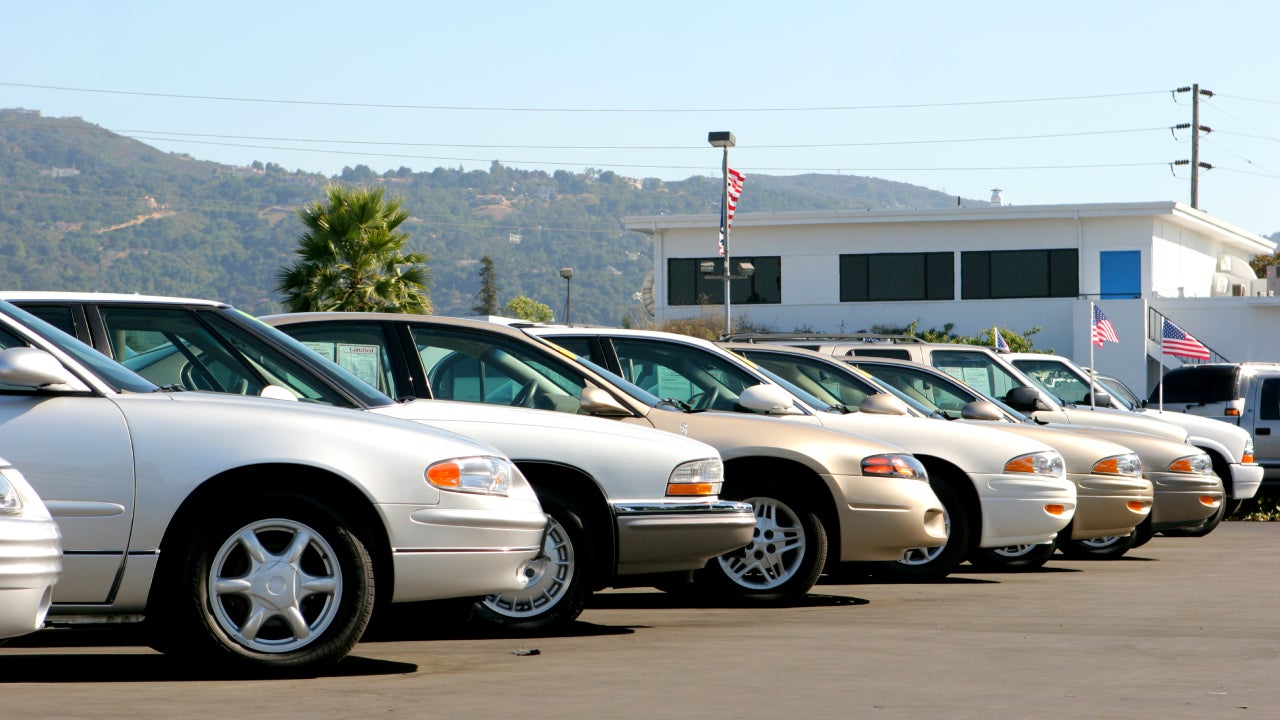Are car insurance rates negotiable?



There are plenty of times when haggling can score you a good deal, but shopping for car insurance isn’t one of them. Contrary to popular opinion, car insurance cannot be negotiated. However, that doesn’t mean you’re locked into a policy with a rate you can’t afford. To get a better deal on your car insurance policy, consider shopping around and comparing quotes from different providers.
Key takeaways
- You cannot negotiate your car insurance rate. An insurance company uses its own algorithm to calculate your car, and it must adhere to state-mandated pricing regulations.
- To get more affordable car insurance, you can ask about discounts, drive a more affordable car model and avoid filing small claims.
- Comparing quotes on a regular basis can give you peace of mind that you’re not overpaying for your policy.
Can you negotiate car insurance?
Unlike some expenses, you can’t negotiate car insurance rates. Each car insurance company determines its rates using algorithms and proprietary tools. Here’s how it works: the company arrives at a base rate, which it uses to determine its price policies and how it will weigh rating factors. The Department of Insurance in the states where a company operates must approve the base rate, so once it’s set, the company can’t adjust the rate without getting prior approval. This is why you can’t negotiate car insurance rates.
Once the base rate is approved, individual and household factors determine your individual premium. These factors include your driving history, vehicle makes and models, location, insurance history and more. Keep in mind that each insurance provider weighs these factors differently and might offer various discounts, which is why insurance rates can vary even if you request quotes for the same coverage choices, limits and deductibles.
Is comparison shopping the same as negotiating car insurance?
Car insurance comparison shopping is something you can do to determine if you’re getting the best coverage for your money from several insurance companies. Remember, you can’t negotiate your car insurance rates so shopping around for comparison and negotiating aren’t the same strategies.
Although you can’t haggle or set your own insurance premium, you can request quotes from any number of insurance providers. If you select the same coverage types and amounts, you’ll have an easier time comparing your quotes to select the best policy for you.
4 Ways to lower your car insurance bill
If you are wondering how to negotiate car insurance, you should understand that you cannot haggle a lower premium. However, there are other ways that you can save on your premium that might help you get cheap car insurance.
1. Shop around
Because each car insurance company has its own underwriting algorithms, premiums for the same coverage will vary between companies. When you are seeking the most affordable price, comparing quotes and coverage options from multiple providers is one of the best methods to see which company can offer you the lowest premium.
2. Take advantage of discounts
Most insurance companies offer discounts that can help to lower your premium. Discounts will vary from one provider to another, but there are some common savings opportunities that many providers offer. Here are some easy discounts to qualify for:
- Multi-policy: This discount is awarded for buying more than one policy from the same company. The most common package is an auto and home discount, but some companies offer savings for buying other lines of insurance, like life or business policies.
- Multi-vehicle: If you have more than one vehicle, insuring them with the same company might save you some money.
- Safe driver: Having a clean driving record, which typically means you have no at-fault accidents, tickets or DUI convictions in the past several years, can help you avoid premium surcharges.
- Vehicle safety features: Insuring a car with safety equipment like side curtain air bags, anti-lock brakes or an automatic braking system to help avoid forward collisions often means you will pay less for insurance.
- Pay-in-full: You might be able to avoid paying installment fees and may get a discount if you pay your car insurance in full, rather than pay monthly or quarterly.
- Paperless: When you choose to go paperless, the insurance company often gives you a discount since they can save on printing and postage costs. Just remember to review your policy at renewal for changes or company errors and to get a copy of your ID cards.
- Defensive driving discount: Some providers offer a premium discount if you take an approved defensive driving course to improve your driving skills.
- Telematics: A telematics device tracks your driving habits for things like harsh braking, speeding and other behaviors. If you’re a safe driver, or if you don’t drive often, it could help you save on your premium.
Other common discounts include savings for good students, students at college without cars, participating in a telematics program or signing up for paperless billing. Reviewing a company’s discounts and taking advantage of as many as you qualify for can help you fit your car insurance premium into your budget. Make a point of periodically reviewing what discounts you’re eligible for so you don’t miss out on potential savings. For instance, you might become eligible for a loyalty discount once you’ve been with your insurance provider for a certain number of years.
3. Drive an affordable car
Vehicle make and model are some of the biggest factors in how much you pay for car insurance. Insurance providers charge higher rates for vehicles that are more expensive, don’t have great safety features or have higher accident ratings. On the other hand, vehicles with more safety features and lower repair costs are often less expensive to insure. Some of the cheapest cars to insure include the Subaru Outback, Honda CR-V, Toyota Tacoma and Toyota Camry.
If you’re currently shopping for a vehicle and want lower insurance rates, consider requesting insurance quotes before you purchase a vehicle, so you know exactly how much you’ll be paying for insurance as well as for the vehicle itself.
| Model | Avg. annual cost of full coverage | Avg. annual cost of minimum coverage |
|---|---|---|
| Subaru Outback | $2,201 | $718 |
| Honda CR-V | $2,235 | $731 |
| Toyota Tacoma | $2,318 | $765 |
| Toyota Camry | $2,670 | $773 |
4. Try to avoid frequent claims
Any claim you file or accident you cause can affect your insurance rates. Although insurance is in place to cover claims, filing frequent claims may indicate risky driving behavior, which can lead to you being perceived as a high-risk driver. An insurer may increase your rate to reflect their higher cost of claims payout or even choose to cancel or nonrenew your policy.
If you get into a minor accident, it may be worth considering paying out of pocket. Getting a quote for repairs before filing a claim can help you determine if it’s worth going through insurance. For instance, if you have hail damage that will cost $700 to fix, but your comprehensive deductible is $500, it may not be worth putting in a claim for a $200 payout. In this case, it could be best to pay out of pocket and avoid being dinged for a small claim.
Frequently asked questions
Methodology
Bankrate utilizes Quadrant Information Services to analyze February 2025 rates for all ZIP codes and carriers in all 50 states and Washington, D.C. Rates are weighted based on the population density in each geographic region. Quoted rates are based on a single, 40-year-old male and female driver with a clean driving record, good credit and the following full coverage limits:
- $100,000 bodily injury liability per person
- $300,000 bodily injury liability per accident
- $50,000 property damage liability per accident
- $100,000 uninsured motorist bodily injury per person
- $300,000 uninsured motorist bodily injury per accident
- $500 collision deductible
- $500 comprehensive deductible
To determine minimum coverage limits, Bankrate used minimum coverage that meets each state’s requirements. Our base profile drivers own a 2023 Toyota Camry, commute five days a week and drive 12,000 miles annually.
These are sample rates and should only be used for comparative purposes.
Model: To determine cost by vehicle type, we evaluated our base profile with the following vehicles applied: Subaru Outback, Honda CR-V, Toyota Tacoma and Toyota Camry (base).
Why we ask for feedback Your feedback helps us improve our content and services. It takes less than a minute to complete.
Your responses are anonymous and will only be used for improving our website.
You may also like


Does car insurance cover ambulance rides?

Tips for first-time car insurance buyers



